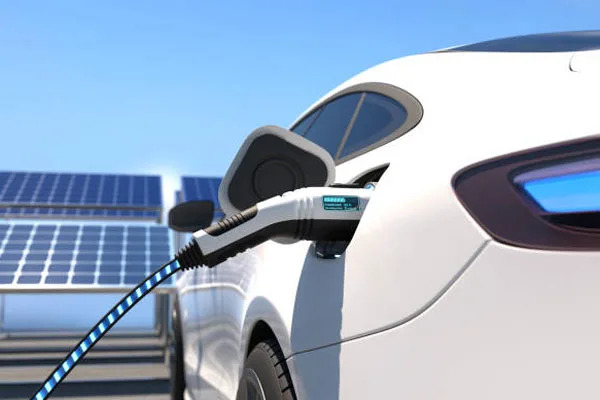Modern electronics are more powerful and complex than ever. From the massive data centers that power cloud services to the tiny components in our pockets, these devices require reliable protection. For engineers and designers, choosing the right enclosure material is a critical decision. While plastics offer cost savings, they often fall short on key performance needs. This is where aluminum die casting provides a superior solution, delivering a powerful combination of thermal management, structural integrity, and shielding.
The process of aluminum die casting involves injecting molten aluminum under high pressure into a steel mold to create components. This method is ideal for producing complex shapes with high precision and excellent surface finish, making it perfect for the demanding requirements of electronics enclosures.
Essential Properties for High-Performance Electronics
For an electronics enclosure, a material must do more than just hold components in place. It must actively contribute to the device’s performance and longevity. Aluminum’s unique combination of properties makes it the top choice.
- Thermal Conductivity: High-performance electronics generate significant amounts of heat. Without a way to manage this heat, performance drops, and component life shortens. Aluminum is an excellent heat conductor, allowing it to act as a natural heat sink. A die-cast aluminum enclosure can draw heat away from internal components and dissipate it into the surrounding air. This eliminates the need for separate, bulky cooling systems in many designs.
- Electromagnetic Shielding: Electronic circuits are sensitive to electromagnetic interference (EMI) and radio frequency interference (RFI). This “noise” can disrupt performance and lead to data errors. Aluminum’s metallic nature provides inherent EMI and RFI shielding, creating a protective barrier that contains the device’s signals and blocks external interference.
- Strength-to-Weight Ratio: Many electronics, from drones to automotive parts, must be both strong and lightweight. Aluminum die casting produces parts with a high strength-to-weight ratio. This enables durable enclosures that can withstand impacts and vibrations without adding unnecessary weight.
- Corrosion Resistance and Durability: Enclosures for outdoor or industrial electronics must survive harsh conditions. Common die-casting alloys, like A380, offer good natural corrosion resistance. When paired with surface treatments like anodizing or powder coating, the enclosure can withstand moisture, chemicals, and extreme temperatures, ensuring long-term reliability.
Key Advantages for Electronics Applications
Precision and Complexity
- Achieves tight tolerances
- Produces intricate shapes with minimal post-processing
- Enables integration of mounting bosses, heat sinks, and connectors
Thermal Performance
- Aluminum’s thermal conductivity helps dissipate heat
- Can incorporate cooling fins and thermal management features directly into design
EMI Protection
- Properly designed cast enclosures provide effective electromagnetic shielding
- Can achieve 60-100 dB attenuation with appropriate wall thickness and design
Cost Efficiency
- High production rates reduce per-unit costs
- Minimal machining requirements
- Long tool life
Material Selection for Electronics Enclosures
Common aluminum alloys used:
- A380 – Most widely used, excellent fluidity and mechanical properties
- A383 (ADC12) – Improved die filling for complex shapes
- A360 – Superior corrosion resistance and pressure tightness
- A413 – Excellent pressure tightness for hermetic applications

Automotive electronics
Real-World Applications of Aluminum Die Casting
The benefits of aluminum die casting are on full display across various industries.
- Telecommunications: The rapid rollout of 5G technology requires a new generation of hardware. 5G base station enclosures must be robust enough for outdoor installation while managing significant heat generated by powerful radios. Die-cast aluminum enclosures provide the necessary heat dissipation and weather resistance, ensuring network reliability.
- Automotive Electronics: As vehicles become increasingly electronic, protecting sensitive components such as engine control units and battery management systems (BMS) is paramount. These enclosures must handle constant vibration, thermal cycles, and potential exposure to fluids. An aluminum die casting provides a sealed, durable, and lightweight housing that protects critical electronics while also helping to cool them.
- Consumer Electronics: High-end consumer products rely on die casting for both functionality and aesthetic appeal. Laptops, gaming consoles, and professional audio equipment utilize die-cast aluminum frames and housings for rigidity and as a heat sink for their internal processors. For drones, die-cast components reduce weight without sacrificing strength, extending flight time and durability.
Selecting the Right Alloy and Partner
Choosing the right alloy is critical for a successful project. While A380 is a popular, general-purpose alloy that balances cost and properties, other options exist. For applications requiring specific properties, a specialized alloy might be a better fit. A knowledgeable manufacturing partner can help you navigate these choices, ensuring the final part meets all performance and budget requirements.
Working with a skilled partner who understands the nuances of material science and design for manufacturing can help you create a superior product. A professional can help with everything from initial design validation to final production, ensuring your electronic enclosures are built to the highest standards of excellence.
Looking for an expert partner to help with your next electronics project? As a full-service manufacturing provider, Nice Rapid offers comprehensive die casting services, encompassing material selection, mold design, and finished part production. Contact Nice Rapid today to learn more about our capabilities and how we can help bring your designs to life.
